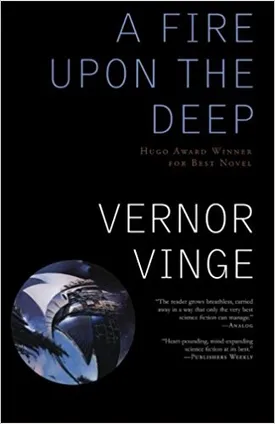Vernor Vinge
Vernor Vinge is one of the most renowned science fiction authors of the 21st century. His works have been widely praised for their wide-ranging themes, intricate plots, and exploration of speculative technology and its social implications. Best known for his creation of the cyberpunk subgenre, Vinge’s work often delves into questions of identity, artificial intelligence, dystopia, and the role of human agency in a world increasingly governed by technology.
Vernor Vinge was born in 1944 in Waukesha, Wisconsin and grew up in Texas. He first became interested in science fiction in high school and wrote his first story for a Clark Ashton Smith fanzine in 1961. Vinge received a B.S. in mathematics from the University of California San Diego in 1965, followed by an M.S. from the same institution in 1967. Vinge then took a teaching position as assistant professor of computer science at San Diego State University, becoming the university's first professor in the field. During his time teaching at SDSU, Vinge wrote extensively and even wrote a column for the computer magazine Interface Age.
Vinge is best known for his novel A Fire Upon the Deep (1992), which received the prestigious Hugo Award. The novel explores the idea of a “stargate” to interconnect civilizations in space. A Fire Upon the Deep was later followed by the sequels A Deepness in the Sky (1999) and Children of the Sky (2012). His work is often praised for its complex narrative structure, strong characters, and carefully detailed biology and civilizations.
In addition to his writing, Vinge is also known for his seminal essay “The Coming Technological Singularity” which hypothesizes the emergence of a self-improving artificial intelligence and its effects on society. This essay has been hugely influential in the development of the field of artificial intelligence research and has been cited by many prominent scientists and thinkers.
Vinge’s works are often praised for their exploration of speculative technology and its impact on human identity and agency. His books often touch on philosophical questions of technology’s role in our lives as well as its effects on society. Whether exploring the implications of artificial intelligence, delving into post-scarcity economies, or touching on the far-reaching implications of digital networks and communication, Vinge’s work has earned him a place among the preeminent authors of his generation. Vinge continues to write, with his latest novel The Children of the Sky set to be released in 2012.

